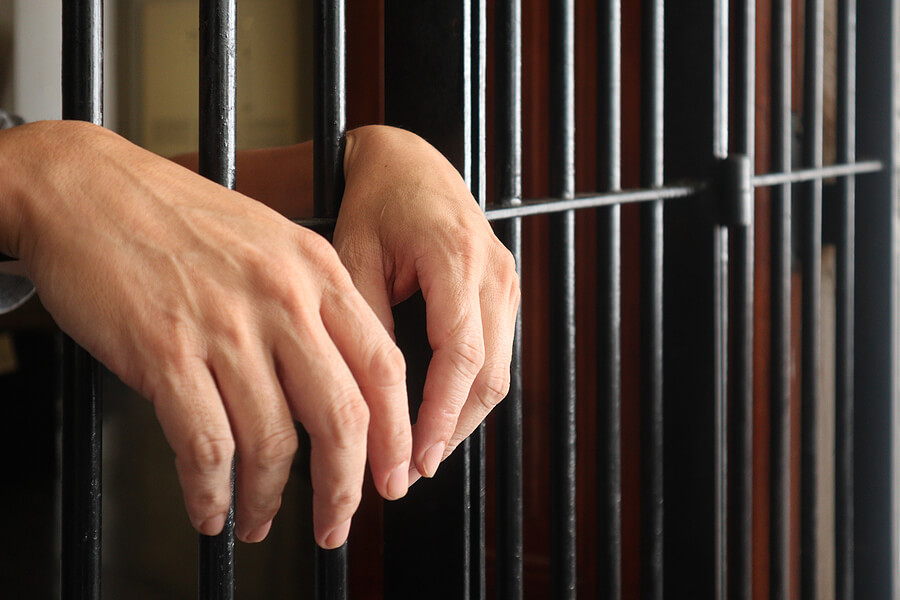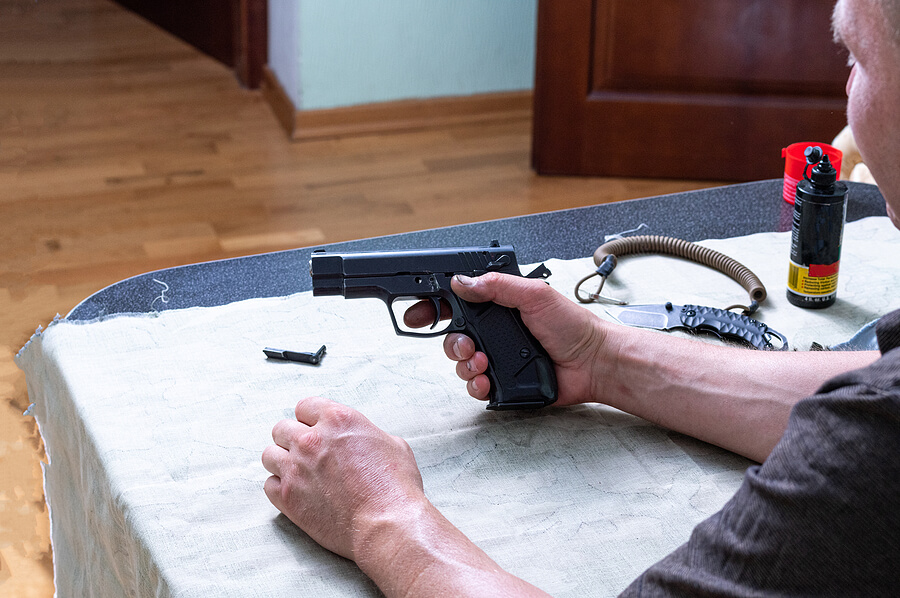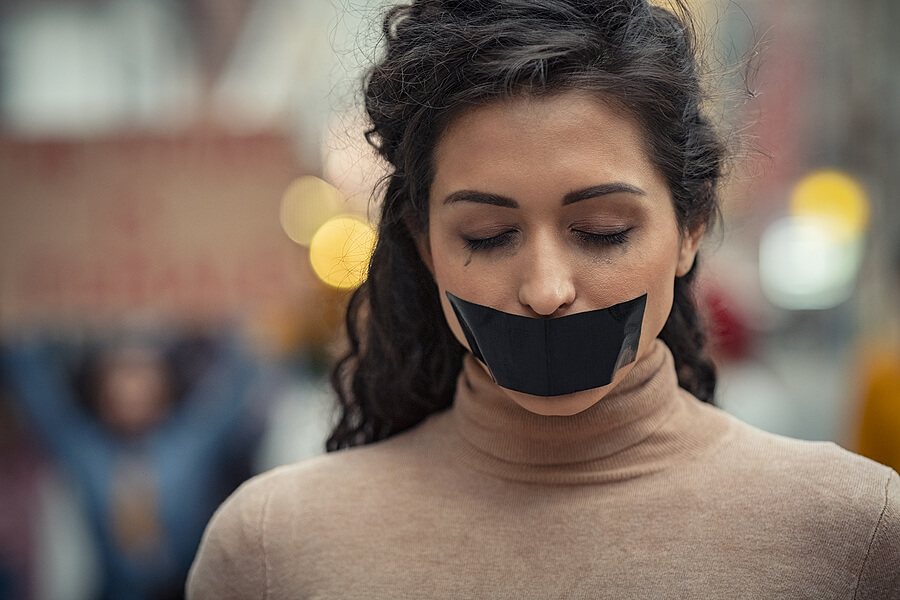You have the right to remain silent. Anything you say can and will be used against you in a court of law. You have the right to an attorney and if you cannot afford one, one will be appointed for you. This well-known statement is the Miranda warning that people hear when they are being arrested.
Most people have only heard this line on TV or in movies. If law enforcement says this to you, take this very seriously. Anything you say really is going to be admitted into court.
What It Means
You are going to be questioned about your involvement in something. Whether or not you are arrested depends on what you do next.
 Once a law enforcement officer indicates that he or she would like to talk to you, be polite and respectful, then clearly state two things:
Once a law enforcement officer indicates that he or she would like to talk to you, be polite and respectful, then clearly state two things:
• I am now invoking my right to remain silent
• I want to speak to an attorney
It is imperative that you speak immediately to invoke your right to silence. You need to state that you are invoking your right to remain silent. If you do not, it will be considered a waiver of your rights and the police will continue to question you and any more statements will become part of the case. Once you have stated you are remaining silent as is your right, at this point all questioning stops until you are allowed to confer with an attorney of your own choosing or one provided for you. If pressed to continue the conversation, clearly state that you do not want to speak to them and will refuse to answer any questions until you speak to an attorney. Be polite but clear, and do not continue speaking if they keep questioning.
If you are approached by a police officer. In North Carolina, you are not required to provide your name or produce any identification. The exception is if you are driving a motor vehicle. Then you are required to produce your driver’s license, registration, and insurance information upon request. For any other questioning, ask to speak to an attorney.
Why You Shouldn’t Speak to Police Right Away
Even if you are innocent, interactions with police should only occur after consulting with a qualified criminal defense attorney. Chances are that you don’t know what they have in mind. Even if you are driving, stop, once you give them your name and driver’s license, and basic information, you are not required to answer any questions. You should respectfully decline those questions without an attorney present.
No matter what the circumstances, police officers are trained in interrogations, and will say anything to get you to admit to anything, even if it isn’t necessarily the truth. They will also take seemingly innocent statements and turn them into something more insidious, leading to statements that indicate you are lying, or that you’re guilty of a crime when you aren’t. The American Civil Liberties Union (ACLU) offers these tips on what to do should you find yourself unexpectedly speaking with the police.
What If The Police “Just Want To Talk?”
If you receive a phone call from a police officer or a law enforcement agent that says, “we just want to talk to you,” this is not a casual conversation. This means they are about to file serious charges against someone, possibly you.
You may be a witness, but they believe you may be a suspect. You are under suspicion, or an arrest may be imminent. Immediately speak to a lawyer before speaking to the police.
Police are given wide latitude when it comes to investigations. This means that they could say anything, true or not, and frequently do. The purpose is not to get to the truth, but to gather evidence and deceive you into believing that they just want to have a conversation.
Should the police show up at your home without a warrant, do not open the door or let them in. Invoke that same right to remain silent. You do not have to offer identification, answer questions, or tell them who is inside. Without a warrant, you are not required to let them in without a warrant. But once you are outside, they may be able to legally search and arrest you.
Don’t fall into the trap of believing that contacting a lawyer for yourself will “make you look guilty.” You have the right to defend yourself and to protect your own rights. Even if you believe that you’re just answering questions, law enforcement is allowed to lie and tell half-truths in order to get you to talk to them, never disclosing the point of their investigation.
Before You Speak to Police, Speak With Raleigh’s Criminal Defense Attorney
You have the right to speak to an attorney before being questioned by police. Dewey P. Brinkley is an experienced criminal defense attorney in Raleigh, NC. Before working as a defense attorney, he was a Wake County Assistant District Attorney. He understands the criminal justice system and how to handle police questioning and interrogations.
Call the law offices of Dewey P. Brinkley today for a free initial consultation to discuss your case at (919) 832-0307. You can also email us using our online contact form.


 North Carolina General Statute 14-277.1
North Carolina General Statute 14-277.1 “If any person shall willfully and unlawfully resist, delay or obstruct a public officer in discharging or attempting to discharge a duty of his office, he shall be guilty of a Class 2 misdemeanor.”
“If any person shall willfully and unlawfully resist, delay or obstruct a public officer in discharging or attempting to discharge a duty of his office, he shall be guilty of a Class 2 misdemeanor.” North Carolina has strict penalties for those arrested for underage drinking, including:
North Carolina has strict penalties for those arrested for underage drinking, including: With the intent to kill, in which serious injury is inflicted, a Class C felony
With the intent to kill, in which serious injury is inflicted, a Class C felony In North Carolina, DWI manslaughter is an action resulting in the death of someone that wouldn’t be classified as murder. There are three types of manslaughter:
In North Carolina, DWI manslaughter is an action resulting in the death of someone that wouldn’t be classified as murder. There are three types of manslaughter: Anyone wishing to request an expungement must do so by filing a petition since it is not automatic. The new law allows for the expunction (also called “expungement”) for:
Anyone wishing to request an expungement must do so by filing a petition since it is not automatic. The new law allows for the expunction (also called “expungement”) for:
